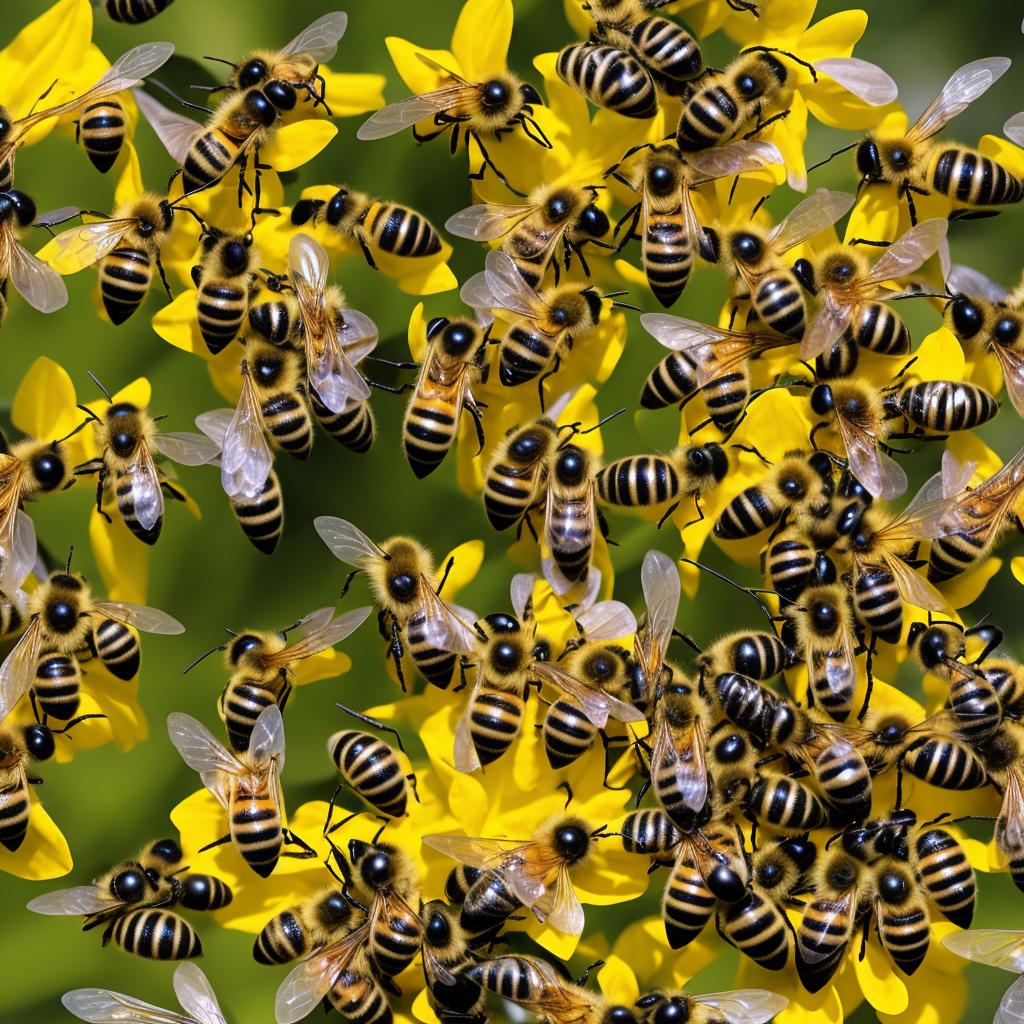In the bustling world of the garden, there exists a group of tiny yet mighty creatures whose importance cannot be overstated. Bees, with their delicate wings and industrious nature, play a crucial role in the delicate ecosystem of the garden. From pollinating colorful flowers to ensuring the growth of fruits and vegetables, these buzzing insects are truly the unsung heroes of the natural world. Join us as we delve into the fascinating world of bees and explore their vital role in the garden, beyond mere pollination.
The Vital Connection: Bees and Pollination
Bees play a crucial role in the ecosystem, especially in the garden, through the process of pollination. This vital connection between bees and pollination ensures the reproduction of plants, including fruits, vegetables, and flowers. Without bees, many plants would not be able to produce seeds or fruit, ultimately affecting the entire food chain.
Beyond pollination, bees also provide us with honey, beeswax, and other beneficial bee products. They are hardworking creatures that tirelessly collect nectar from flowers to make honey, which has been enjoyed by humans for centuries. Additionally, beeswax is used in various beauty and skincare products for its natural properties. Appreciating the role of bees in the garden goes beyond pollination and encompasses a deeper appreciation for their contribution to our environment and well-being.
Boosting Garden Health: Ecosystem Services Provided by Bees
Bees play a vital role in maintaining the health and biodiversity of our gardens through the ecosystem services they provide. One of the most essential services bees offer is pollination. As bees move from flower to flower in search of nectar and pollen, they transfer pollen grains from the male anthers to the female stigma, enabling plants to reproduce and produce fruits, vegetables, and seeds.
Aside from pollination, bees also contribute to the overall health of the garden ecosystem in various ways. They help control pests by preying on insects that damage crops, plants, and flowers. Additionally, bees promote soil health through their activities, such as creating burrows that improve soil aeration and drainage. By supporting the presence of bees in our gardens, we can boost biodiversity, enhance crop yields, and create a thriving environment for plants and wildlife to flourish.
Creating a Bee-Friendly Garden: Tips for Attracting and Supporting Pollinators
Bees play a crucial role in our gardens beyond just pollination. These tiny creatures are essential to the health and sustainability of our ecosystem, as they help to maintain biodiversity and support the growth of plants. In addition to pollinating flowers and crops, bees also contribute to the production of honey, beeswax, and other hive products that have been used by humans for centuries.
By creating a bee-friendly garden, you can help to support and protect these important pollinators. Planting a variety of flowers, herbs, and shrubs that provide food and habitat for bees is a great way to attract them to your garden. **Some bee-friendly plants to consider including in your garden are:**
– Lavender
– Sunflowers
– Bee balm
– Coneflowers
The Impact of Bee Decline: Understanding Threats and Taking Action
Bees play a crucial role in our gardens beyond just pollination. They are essential for maintaining a healthy ecosystem by helping to support a diverse range of plant life and wildlife. By actively foraging for nectar and pollen, bees also help to improve soil fertility and overall garden health.
One of the benefits of having bees in the garden is their ability to act as natural pest controllers, preying on harmful insects that can damage plants. Bees also contribute to the production of honey and beeswax, which have been used by humans for various purposes for centuries. By understanding the important role bees play in our gardens, we can take action to protect these vital pollinators and ensure a thriving ecosystem for generations to come.
The Conclusion
As we reflect on the vital role that bees play in our gardens, it becomes clear that these tiny creatures are truly the unsung heroes of our ecosystems. From pollinating our fruits and vegetables to enriching the soil and beautifying our surroundings, bees are an integral part of the interconnected web of life. So next time you see a bee buzzing around your garden, take a moment to appreciate all that they do for us. Whether it’s enjoying the fruits of their labor or simply watching them as they go about their work, let’s continue to support and protect these incredible creatures for generations to come. Remember, in a world without bees, our gardens would be much less vibrant and productive. Let’s be grateful for the important role that bees play in our lives and ensure that they thrive in our gardens for years to come.




